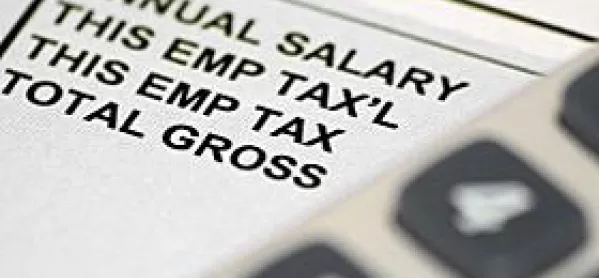Pensions fear for teachers

Scottish teachers are staring into the abyss of a review of their pensions and the prospect of a pay freeze for the next two years, after the Chancellor this week announced the biggest package of tax increases and spending cuts in a generation.
George Osborne confirmed his plans for an independent review of public service pensions, to be completed by this time next year. John Hutton, the former Work and Pensions Secretary in the last Labour Government at Westminster, will conduct the inquiry, which could see the end of final salary pensions for teachers and other public sector staff.
The Educational Institute of Scotland attacked the announcement, pointing out that Scottish teachers’ pension arrangements had undergone a far- reaching review only three years ago. The retirement age was raised to 65 for new entrants, employee contributions were increased to 6.4 per cent, and the basis for calculating final pensions was changed.
EIS assistant secretary Drew Morrice pointed to the irony that Mr Hutton was the minister who approved these pension changes, which were described at the time as “sustainable” and “affordable”.
Some 90 per cent of unpromoted teachers are understood to have a retirement entitlement of less than pound;10,000. This was hardly the “gold- plated” scheme it was alleged to be, Mr Morrice commented.
He said it would be an “injustice” if there was any attempt to alter the provisions for current members of the scheme, since they entered it on the understanding of what the benefits would be.
Mr Morrice added: “These issues have been politicised, and public pension schemes are being criticised as unaffordable because they continue to be final salary schemes. The real travesty in pension schemes has been the closing down of final salary schemes elsewhere in favour of career average schemes or, alternatively, schemes linked to market performance contributions.”
In March 2009, there were 78,242 active members in the Scottish Teachers’ Superannuation Scheme which faced liabilities on present and future pay- outs of pound;18billion.
A spokeswoman for the Scottish Government said Scottish ministers would “seek to ensure” that the Hutton review took account of Scottish interests.
The Chancellor also signalled in the coalition Government’s first Budget that he wants to accelerate plans to raise the state pension age to 66.
“That does not bode well for us when we are producing too many teachers in Scotland,” Mr Morrice suggests. “It is some message to send to graduates - that the Government wants to keep teachers at the chalkface a bit longer.”
Public sector workers in England also face a two-year pay freeze - except those earning less than pound;21,000 a year - and the education budget south of the border could be facing a cut of as much as 25 per cent over four years.
Mr Morrice said: “The real message being sent to teachers is that `you are too expensive’. The cap of pound;21,000 affects every teacher in every school in Scotland. So much for recruiting and retaining the best people and the best graduates.”
Scottish teachers’ pay is devolved to the tripartite Scottish Negotiating Committee for Teachers (SNCT), made up of unions, local authorities and the Scottish Government. But if their colleagues in England are subject to a pay freeze, Scottish teachers are likely to be in the same boat.
Teachers north of the border received the final 2.4 per cent instalment of their three-year pay deal three months ago, so their salaries could remain frozen until April 2013
Ann Ballinger, general secretary of the Scottish Secondary Teachers’ Association, urged her members to be realistic in their expectations. “The chances of our getting a pay rise next year are virtually nil - and I think teachers all know it,” she told The TESS.
“It will be difficult to demand additional money when people are not working and the number of teachers is dropping - that is the ploy the employers will use.”
Scottish councils tried unsuccessfully to introduce a pay freeze this year in the face of tight council budgets, and Pat Watters, president of the Convention of Scottish Local Authorities, issued a stark warning this week: “Unless we manage this carefully, there is a real risk that the short-term actions people take will cause unnecessary pain and do lasting damage”.
Mr Watters called for early talks between local government and Scottish ministers to produce a long-term strategy to deal with the cuts announced by the Chancellor.
Meanwhile, in England, the two-year pay freeze for public sector workers has raised the spectre of mass industrial action by teachers, the major classroom unions have warned.
Christine Blower, general secretary of the National Union of Teachers, said it would give “serious consideration” to action if the halt on wage rises was coupled with an expected attack on pensions and education budgets.
Chris Keates, general secretary of the National Association of Schoolmasters Union of Women Teachers, argued that teachers should be exempt from the pensions review as their pensions had come under scrutiny in 2007 when the retirement age was raised to 65 for new entrants.
elizabeth.buie@tes.co.uk.
Keep reading for just £1 per month
You've reached your limit of free articles this month. Subscribe for £1 per month for three months and get:
- Unlimited access to all Tes magazine content
- Exclusive subscriber-only stories
- Award-winning email newsletters